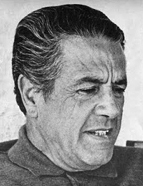

The first two sets, dedicated to two villages in Northern Portugal, each with a small population confined to a limited area, were based on personal observation. The last is a team effort, seeking to study a society with over 100,000 individuals—the Makonde in Northern Mozambique—spread across a vast territory, whose language was unknown and with whom a close cultural understanding was not possible, unlike the first monographs. However, there are connections in terms of content between his earlier studies and this latter research, detectable both in the role given to the environment and history, as well as in the concern with material culture, social organisation, beliefs, and popular culture, and, in general, with a tradition that the anthropologist felt was under threat.
To understand Jorge Dias' positions and trajectory, it is necessary to learn more about his personal journey beyond the advantages provided by the class into which he was born and the education he received. His subjectivity needs to be considered and his personal development positioned within the historical context of his time. Although little is known about his youth, it is still possible to perceive his non-conformist attitude towards what would have been the most likely fate for a member of the affluent middle class, destined for business, like his father, or a lucrative profession. As a young man, he felt drawn to the rural world and the mountain villages, to vagrancy, as he called it, connected to a profound sense of freedom, in contrast with the life the city could offer him. He even considered living in the countryside with friends, some of whom would remain his closest intellectual companions throughout his life. This passion for the rural world translated into an ethnographic vocation that led him to study the peasantry, particularly that which appeared most distant from the urban life of his time and environment. In fact, as he explained in a letter to Ernesto Veiga de Oliveira, ethnography would allow them to live the life they dreamed of, accompanied by the comfort of a salary (João Leal, A energia da antropologia ...[The Energy of Anthropology ...], 2008).
